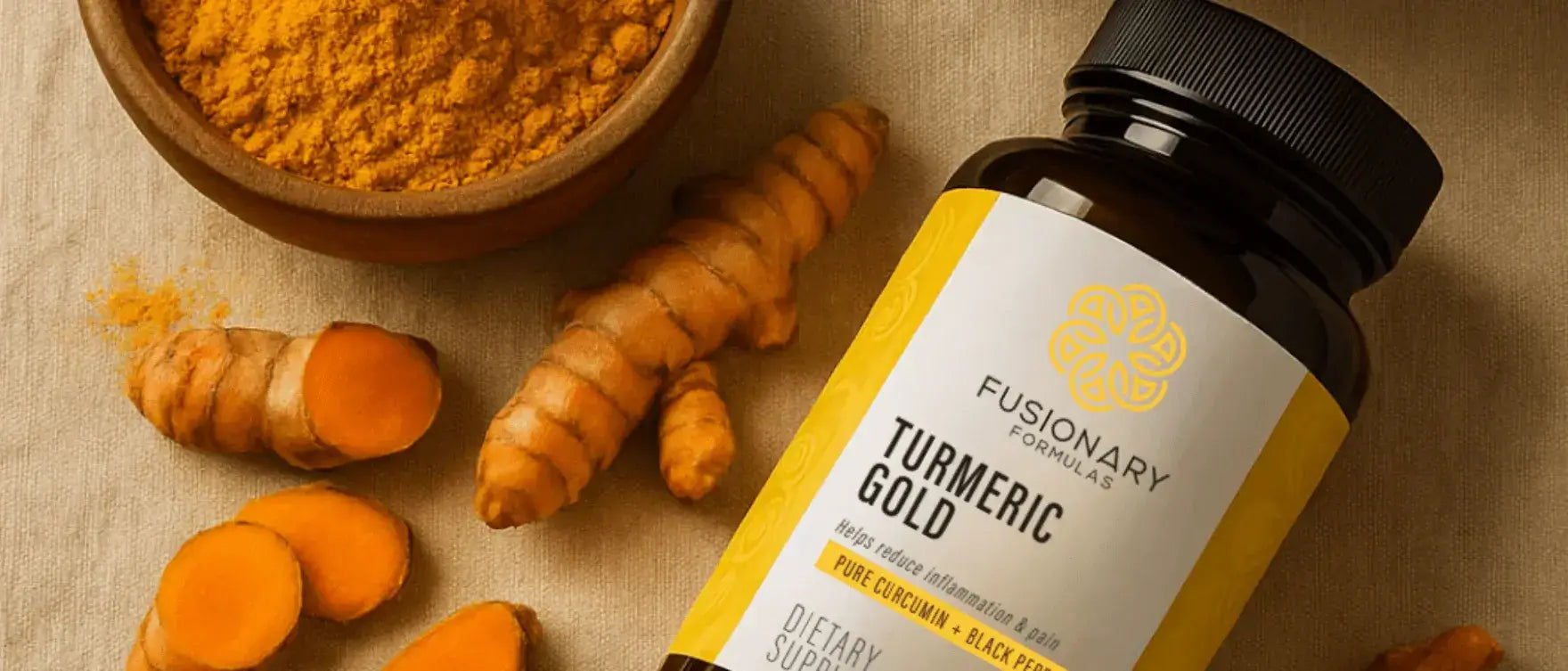
By
Dr. Shivani Gupta
What Happens When You Take Turmeric for 30 Days? A Deep Dive into Turmeric Gold
Discover the potential benefits of taking turmeric for 30 days. Exp...
Free Shipping on All Orders Anytime

Discover the potential benefits of taking turmeric for 30 days. Exp...

Explore how gum inflammation may signal systemic issues. Discover A...

Discover the science-backed benefits of turmeric and curcumin, how...
Scroll
These statements have not been approved by the Food and Drug Administration. This product is not intended to diagnose, treat, cure, or prevent any disease.
Testimonials found at FusionaryFormulas.com are unverified results that have been forwarded to us by users, and may not reflect the typical purchaser’s experience,
may not apply to the average person and are not intended to represent or guarantee that anyone will achieve the same or similar results.
